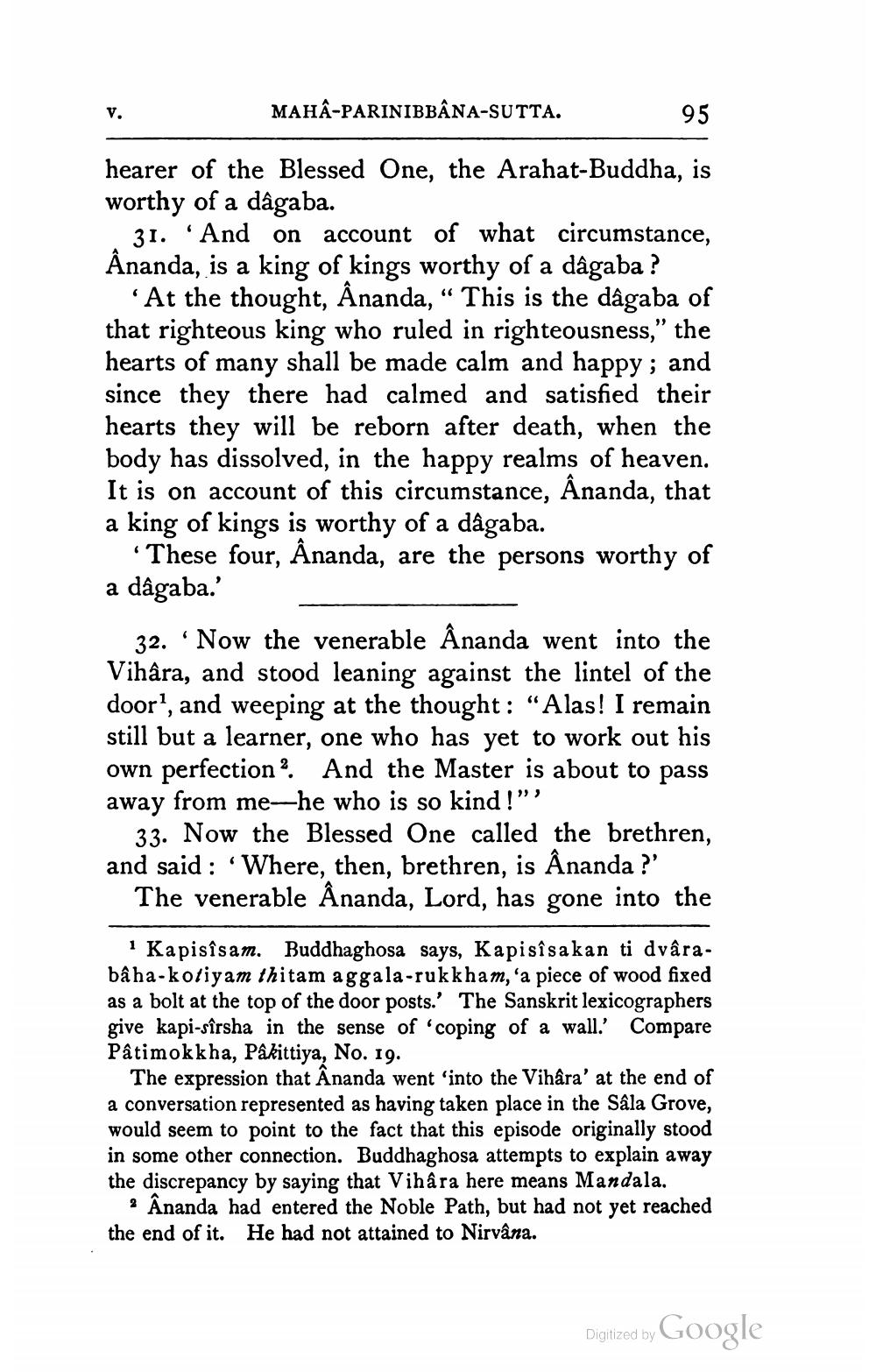________________
MAHẬ-PARINIBBÂNA-SUTTA.
hearer of the Blessed One, the Arahat-Buddha, is worthy of a dâgaba.
31. *And on account of what circumstance, Ânanda, is a king of kings worthy of a dâgaba ?
At the thought, Ananda, “ This is the dâgaba of that righteous king who ruled in righteousness,” the hearts of many shall be made calm and happy; and since they there had calmed and satisfied their hearts they will be reborn after death, when the body has dissolved, in the happy realms of heaven. It is on account of this circumstance, Ananda, that a king of kings is worthy of a dâgaba.
*These four, Ananda, are the persons worthy of a dâgaba.
32. Now the venerable Ânanda went into the Vihara, and stood leaning against the lintel of the door?, and weeping at the thought: "Alas! I remain still but a learner, one who has yet to work out his own perfection. And the Master is about to pass away from me he who is so kind!”
33. Now the Blessed One called the brethren, and said: "Where, then, brethren, is Ânanda ?'
The venerable Ânanda, Lord, has gone into the
1 Kapisîsam. Buddhaghosa says, Kapisîsakan ti dvârabâha-kotiyam thitam aggala-rukkham,'a piece of wood fixed as a bolt at the top of the door posts.' The Sanskrit lexicographers give kapi-sîrsha in the sense of 'coping of a wall. Compare Pâtimokkha, Pâkittiya, No. 19.
The expression that Ananda went 'into the Vihara' at the end of a conversation represented as having taken place in the Sâla Grove, would seem to point to the fact that this episode originally stood in some other connection. Buddhaghosa attempts to explain away the discrepancy by saying that Vihâra here means Mandala.
Ananda had entered the Noble Path, but had not yet reached the end of it. He had not attained to Nirvana.
Digitized by Google




